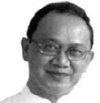Developing the capacity for recollection
- Details
- Blog Content
- Hits: 5111
This is a very important and indispensable component in anyone’s pursuit for maturity and fullness of life. We need to develop our capacity to reflect, to keep some focus, to gather together our human powers so that they organically aim at our ultimate goal.
The problem we have now is the tendency to dispersion, to be scattered in attention and to spread ourselves too thinly over so many things that can grab our interest often without proper assessment.
Some opinion-makers talk about an increasingly multicultural, multi-ethnical and multi-religious world, a world becoming more complex with multiplying layers that often are unrelated to one another.
This phenomenon often leaves us confounded, lost, indifferent and also relying simply on a coasting-along attitude toward life. Or it can make an opposite effect—people drowning themselves in activism, but doing it more as a matter of escapism.
Of course, other forms of escapism now proliferate. Wasting time in cyberspace, going into drugs, sex and other illicit but pleasurable and easy activities, have increased. And like everything else, these too leave behind a dark trail that contributes to corrupting society further.
Truth is many people now are without any long-term plans. They seem to live on a day-to-day survival mode. Talk to them about prayer, sacrifice, sacraments, formation, virtues, etc., and you most likely would just get a blank stare.
Given this situation, the ideological seeds of atheism, agnosticism, pragmatism, relativism, and even nihilism start to germinate and take root. That’s why we now have, in many places and even in our own country, campaigns to redefine the nature of things and their corresponding morality.
We now have the RH Law that openly approves of artificial contraception. But there already are moves to join the bandwagon of divorce, abortion, same-sex unions, euthanasia, etc. The culture of death is already descending on us.
But in the face of all these, we should not just stop at lamenting. Rather, these should spur us more to action. And one truly essential skill that we should try to teach everyone to cultivate is how to get recollected.
It’s the effort to keep our senses and everything related to them—emotions, desires, memory, imagination, etc.—and our intelligence and will engaged with God. The skill to do this has to be learned. Obviously it also has to be taught first.
To be recollected is first to make an act of faith, and to enter into the world of faith. It cannot be done without faith. And to be moved by faith, we need to be brutally sincere with ourselves so that we can feel what once St. Augustine once said: “You made us for yourself, Lord, and our heart is restless until it rests in you.”
The obstacle in this regard is that we insulate our heart from God, letting it to be fully captivated by mere material things, even if such things do not fully pacify the yearnings of our heart. Ironically, we prefer to make some kind of faith in the material things rather than in a supreme spiritual and supernatural being who is God.
Many of us fail to connect that the material things also come from God. They are supposed to lead us to God, at least to thank him and to figure out with him how they are supposed to be used.
But the grip of self-centeredness sometimes can be quite strong. It can be blinding and intoxicating. And so we just have to expose in a consistent and delicate way the absurdity of such attitude.
With self-centeredness, we fail to understand many things, we make ourselves the center of the universe, we fail to reach out to others, to give ourselves to them, to serve them.
It’s only when we are recollected, when we are intimately engaged with God, that we get to see things clearly, judging them in their proper light, and egging us to do what is best, what is most charitable and prudent at any given moment.
Far from detaching us from others and the issues of the day, our spirit of recollection would enable us to enter into an intimate relation with them.
And so, we just have to remember what Christ told Martha about Mary: “Martha, Martha, you are anxious about so many things, yet only one thing is necessary, and Mary has chosen it.”
We should be careful not to be swept away by the waves of our passions, the impulses of the flesh and the logic of the world, so as to be recollected with God.
 Opus Dei priest Fr. Roy Cimagala is chaplain of Paref-Springdale School, Lahug, Cebu. Visit Fr. Roy's Facebook page. Email: This email address is being protected from spambots. You need JavaScript enabled to view it.
Opus Dei priest Fr. Roy Cimagala is chaplain of Paref-Springdale School, Lahug, Cebu. Visit Fr. Roy's Facebook page. Email: This email address is being protected from spambots. You need JavaScript enabled to view it.

